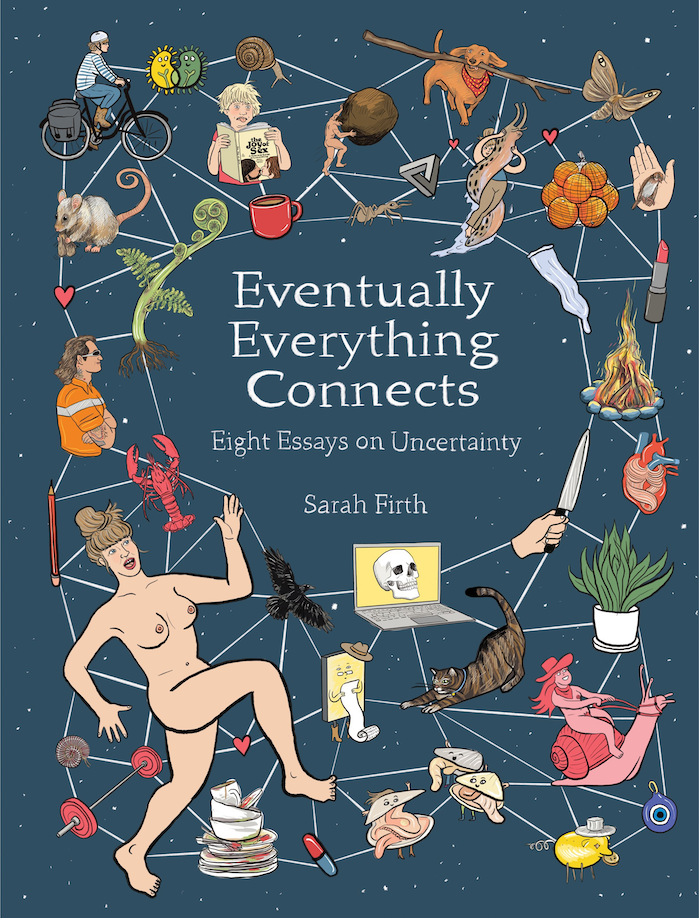💌 A Stance on “Mindset”
Hello friends. It’s been a few weeks, and I have much to update you on. Rather than have this particular museletter become one of my signature saga-length soliloquies, I shall endeavour to keep things succinct. In this epistle I announce my resurrection of the Dr. Jason Fox website, share some new interviews and books from friends, and contemplate the heretical claim that “having a growth mindset doesn’t work” [gasp!]. We conclude with GLIMMERS.✨
The Archwizard of Ambiguity is back!
I have resurrected my website over at drjasonfox.com. This is my glittered trojan horse; use this to smuggle me into the heart of your enterprise, so that we can work out magics together. (ノ◕ヮ◕)ノ*:・゚✧

Genuinely, it’s been a challenge to be both intellectually honest and commercially effective in this distraction economy. Any change is a threat to the established default. And yet: only that which can change can continue. You and I can be co-conspirators in this dance; let’s see what we might do.
As ever: I quest to co-create a world more curious and kind.
And now, onto some updates.
Books abound and podcasts aplenty
I had a recent podcast chat with Leanne Hughes—author of The 2-Hour Workshop Blueprint—on her show First Time Facilitator. We spoke loosely around themes of emergence and ‘being prepared to wing it’—but I also found it such a refreshingly down-to-earth and real conversation. It was as if we were two friends talking, instead of two thought leaders performing—fancy that! We both found ourselves baffled by how persistently effective insipid cliché content seems to be. I loved this conversation and I suspect you will, too.
(I was probably too down-to-earth. I always intend to manifest as mysterious and cool, but I end up being warm and honest. Next time, maybe!)
We also both name-dropped Michael Bungay Stanier and his wonderful new book—How to Work With (Almost) Anyone. I really quite love MBS’s way of showing up in the world; ever curious, enlivening, upbeat. His new book is genuinely an inspiration in content and form. This hermit wizard could learn many a thing from him. Here’s a video promo I did for the book, pre-launch.
And whilst we are on the topic of new books, my dear friend Sarah Firth’s wondrous book Eventually Everything Connects—Eight Essays On Uncertainty is now available for pre-order. I’ve seen an advanced copy, held it in its hands, appreciated its heft and marvelled at both its breadth and depth.

This is a delightful tome eight years in the making, and is a vital and refreshing way to appreciate the dynamically interconnected complexities of life in this odd epoch we share. Pre-order your copy (it’s super helpful for authors to pre-order, as it lets booksellers know what’s hot).
Also heck, while we are at it, the legend Tyson Yunkaporta—author of Sand Talk—has a new book coming out: Right Story, Wrong Story: Adventures in Indigenous Thinking. Pre-order this one, too! (I will likely dedicate more museletters to these concepts in the coming months).
Growing up about Growth Mindset
A recent meta-analysis of 63 studies (N=97,672) found that the overall effect of ‘growth mindset interventions’ was nonsignificant (after correcting for publication bias). I was alerted to this new study via this thread by Professor Jay Van Bavel.
“Authors with a financial incentive to report positive findings published significantly larger effects than authors without this incentive.” (source)
Gosh who’d have thought incentives could create bias? Quite flabbergasting. /s
I remember once reading the introduction to a professional speaker we had invited to a large event we were hosting, and they had in their introduction notes a reference to a published scientific study that ‘proved’ their keynote presentations were effective. Ha! Suffice to say I stumbled on that point.
But, motivated reasoning aside: should we ditch growth mindset and embrace a fixed mindset? Haha: fūck no! The principles behind growth mindset are very sensible, and it would be silly to rob people of the belief that they can improve. Because: of course they can.
The real issue this meta-analysis points to is the bias that skews the way some researchers construct their studies and report their findings. Thus: this is science going about and doing its thing; slowly yet meticulously self-correcting when assumptions and extrapolations become too exuberant.
And that’s the heart of the issue, as I see it: the exuberance we apply to certain ideas. We become enchanted by them; enamoured. Especially when paired with bestselling authors who give charismatic TED presentations. Sweeping programs are then created and rolled out within organisations. The folks creating these Named Programs are naturally biased to report that they work (that’s what they’re paid for) so of course: more evidence that The Program Works is created and promulgated. Then influencer thought leaders start spreading the narrative in their work, quoting these in-house organisational case studies as evidence. These folks are all great marketers, and so in time we find ourselves conflating the intervention with the sensibilities that inspired it. And so when such meta-analyses emerge, some are actually inclined to believe that the “Growth Mindset Doesn’t Work”.
Ha, no. But: maybe your interventions could be reconsidered? Maybe they have drifted, warped, or become a bit exuberant and detached from reality? Perhaps some unhelpful Magical Thinking as slipped in? Or: maybe not! It really depends on how you go about measuring these things.
We can’t escape bias—but the scientific method does try to correct for it, in time.
My wish for most of us is to become a little less enchanted with most ideas, and instead: a bit more warmly amused. That we might “entertain ideas” rather than embrace them whole-heartedly. Not with cold ironic detachment; but with a kind of sincere irony. Like indulging a friend by listening to a story you’re fascinated by yet not quite sure you believe. This way, when considering their efficacy, you are less personally invested and attached to it all.
Oh but stahp saying “Mindset”
I get it: it has an appeal to it. It seems solid. Set, like concrete.
I have another close professional speaker friend who asks audiences if they can define what mindset means. After hearing a bunch of answers of varying degrees of quality from the audience, he mic drops with this banger: “Mindset is simply the setting of the mind”. The audience ooohs at the profundity, and reverently take note.
Mindset is a popular word for a busy world because it allows people to hallucinate understanding very swiftly. But even if we all get in a room and agree on the particular mindset we need to embrace—agile? innovative? growth? olympic?—it will still likely manifest different meanings. Just like how ‘Make America Great Again’ is a nothing-statement that allows people to project unto it what ‘great’ means to them—so too ‘mindset’ allows us to do our own projections.
I do the same. For a while I have had the book “The Scout Mindset: Why Some People See Things Clearly and Others Don’t” by Julia Galef flagged as something I might skim one day. I like scouts as a rogue archetype—light, sneaky, perceptive, intelligent, and so on. And so I would love to pick up the book and have my projections mostly affirmed.
But I am still reluctant to use the term ‘mindset’. Mostly because it feels monolithic; a kind of imperialising of our wildness.
I have an alternative, though.
Consider: ‘Stances’
In many martial arts* there are various stances we can adopt, based upon the context we find ourselves in. Of course, the context of martial arts combat changes so swiftly, so one must be fluid in how they transition between stances.
* I can speak of martial arts as a bit of an authority; I am an elastic belt in Aikido and once upon a time nearly completed the game ‘Ghost of Tsushima’.
But it’s not just in martial arts—we do this throughout life. If you find yourself on a boat upon a roiling sea, it is likely your stance will widen so as to increase your level of stability. If you were to play a game of squash, you would likely have more weight on the balls of your feet, so as to better spring into action. And if you find yourself in front of a mirror, it is likely you will be reminded of how others might perceive you—and perhaps you will straighten any slouch.
In all of these examples, your stance is updated situationally.* I consider this more apt than the adoption of any particular ‘mindset’—though I may very well be saying the same thing. Particularly if you think of mindsets as a kind of ‘mask’ to wear (more as a shamanic amplification than any sort of ‘concealment’); even more so if you have a set of masks to choose from, so that you can adopt whatever aspect serves for the context you find yourself in.
* David Chapman writes of stances with much depth—it’s probably from here where my original inspiration for this musing came.

So! If it’s crunch time and you need to ‘get shït done’—your stance will lend itself to tactical matters, more oriented to sprints (as distinct from longer quests), and more inclined to tight feedback loops, narrowed focus, and minimised distraction. But if you have acquired some margin, and you have the optionality to venture beyond the immediate, it may be that your stance is more questingly inclined. Here, your heuristics (mental shortcuts) may skew towards questioning, sparring, sense-making, and generally cultivating an acuity for the emergent. But then, lo! things aren’t going so well at home for a close colleague. Fūck work for the moment; it can wait. Your stance is now that of a friend. Come, let’s go for a walk. Tell me, what’s happening.
What I am trying to suggest here, is: everything is everything. And everything has its time and place. To remain congruent, coherent, deft and apt within the many changing contexts you move between is less about finding The Right ‘Mindset’ and more about fluidly adopting the appropriate stance for the situation we find ourselves in.
I say this because we are in a time where many of us tend to overly reify ideas—particularly when applied at scale. And then we become shocked when they have nonsignificant impact, despite all that investment. Something gets lost in translation—akin to the difference between a nona making a special lasagne just for you (served fresh from the oven)—and the canteen making 15,000 lasagnes for export (of which yours is currently defrosting in the microwave).
Ha, and now we get to matters of granularity and scale—but I may muse upon these another time. Let me share with you now some glimmers.
Glimmers ✨
- I’ve fallen in love with the xennial energy of ZONE ZINE. This issue features an interview with Kevin Kelly—whom I suspect is, slowly, somehow warming to web3 (!). He’s still a fan of tech monopolies, though. So: ok.
- I also particularly loved The Lexicon of Lorecore by Shumon Basar (co-author of ‘The Extreme Self’—a graphic-novel guide to the demented present). The first item in the lexicon names something that had previously remained ineffable to me: Agnostimistic (adj.)—Neither optimistic nor pessimistic but a secret third thing. Similiar: Doom Mood Advantage. Damn, actually as I write that I thought it was a sacred third thing. I guess it can still be that, too.
- I remain enamoured by pixel artists. It seems like the deluge of midjourney, stable diffusion and dall·e artworks have had me noticing and appreciating the richness of hand-crafted pixels (and other mediums) even more. Like: I don’t even admire cars but this is gorgeous.
- My writerly friend Dangerous Meredith wrote a thread in a relatable lamentation of what has become of twitter and social media. And this was before twitter was renamed “X”. The first 14 drafts of this museletter I write to you now have mostly been me lamenting on much the same. I’ve spared you my opining, as it was quite unbecoming.
- Danica Swanson—another writer I admire—is Leaving Substack and Moving to Paragraph. I really respect this, and I’d love to do the same. My current strategy is to half-ass it by intentionally working with ghost. Whilst I really love how paragraph has integrated with farcaster (a sufficiently decentralised social protocol) for comments and reach—I don’t appreciate how their font options do not (yet) support true italics. Their italics are actually obliques(!). Someday it will be ready for me, and I am enthusiastic for that time. Until then: I need to figure out if I import my old writing from substack (as a kind of offering to The SEO Algorithm: here, chomp on this)—or: do I just delete it all like Danica is doing? Watch this space. (Side note: I kind of relish the notion of “optimal obscurity”—most of the brightest minds I follow are also the most obscure, if that makes any sense).
- I would love to be able to talk to more people about this podcast where Daniel Schmachtenberger talks of the implications of AI. It would be really, really nice to find a cogent counter-thesis that isn’t simply a techno-optimist rehash of The Progress Narrative. (Though: I understand that The Progress Narrative is a much more effective narrative to promulgate under our current monetary system. Indeed; my first book The Game Changer was all about progress (a bestseller). And then my next book, How to Lead a Quest, posited that there is a distinction between meaningful progress and the delusion of progress (also a bestseller). Yet I am still plagued by the question: what is meaningful progress? My current stance is that meaningful progress is that which orients towards collective flourishing, and the complexification of all life {that is: the conditions that allow for greater biological, genetic, behavioural, ecosystem, cognitive and societal development to emerge}. Yet the path to achieving this requires that we find a way out of the multipolar traps we have woven for ourselves, which at this stage remains non-obvious. And so: the quest continues.)
- Speaking of D–Shmacht, his recent appearance on The Global Impact Tech Alliance Master Series is a must watch. In my questing work with clients, we have invested a lot of funds to have minds like this come in and chat with executive teams in exclusive/intimate speakeasy forms. But here you can witness such a conversation [effectively] for free! This conversation is genuinely vital viewing; it reveals much of the illusions and constructs many remain blind to.
- Listening to Schmachtenberger can be, as a friend of mine puts it, libidinally sapping. If you need a restorative pick me up, I enjoyed this podcast conversation in which the mythologist Dr. Martin Shaw gently and warmly implores that we seek the reality that cannot be found via screens and devices.
Speaking of, last night the dangerlam and I enjoyed a tiramisu (Italian for ‘pick me up’). It was quite good, though not quite as good as Cam’s. And last month we did a hike with some friends in Tasmania; I highly recommend it.

The hardest thing for me this past month has been coming back from the wilderness and trying to relate to what I have seen continue on social media. Being away from screens and devices and the interwebs—even for just a few nights—is enough of an ontological detox to make the warped nature of social media ever more apparent upon my return. Like being on an elimination diet and discovering that your tummy doesn’t like bread. But I love bread! Yeah but it makes you feel poorly. But: it’s bread! Actually, you make a good point.
And so here I am, drawing your attention to that which draws your attention. Whilst I have you, the lyrics to A Perfect Circle’s Disillusioned seem more apt than ever.
But fret not for this wizard; I will liberate more souls from Moloch. Perhaps my fancy new disguise will work?
Thank you so much once again. Please feel free to comment or ask questions below; it is always lovely to hear from you. Oh and if a friend forwarded this to you (how nice of them!) you can join the many thousands who subscribe to The Museletter.
Much warmth
—fw

Member discussion